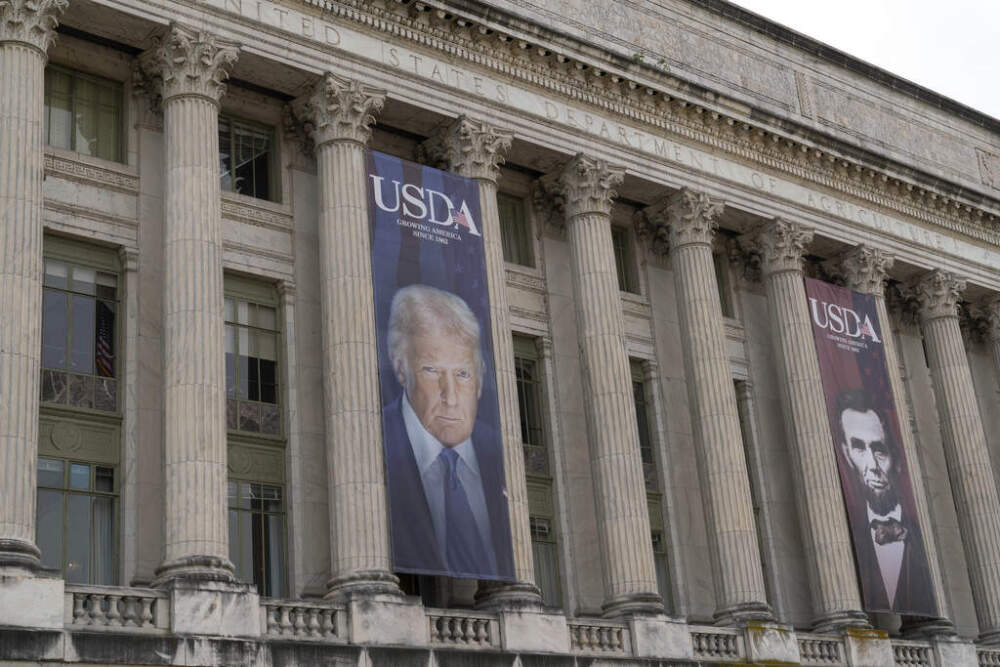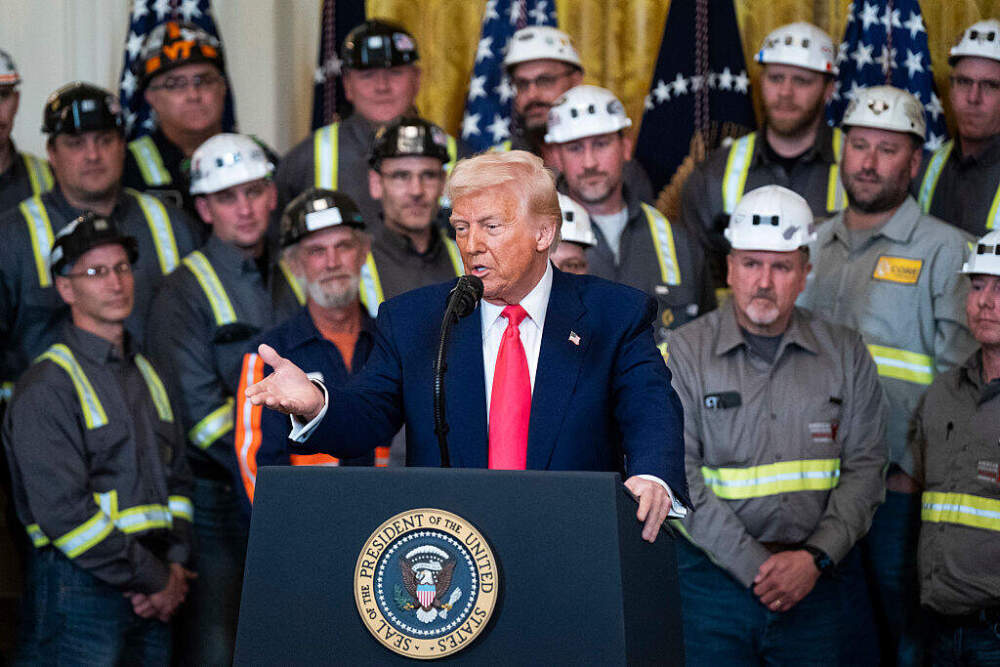Advertisement
Commentary
There is no ‘national energy emergency.' Trump just wants you to think there is

Anyone unsure whether the U.S. has veered into authoritarianism should look at a recent photograph of the Department of Agriculture building in Washington. A nearly three-story-high banner bearing an image of a stern President Trump hangs from its facade, his glower emblematic of the political power that has accrued to the executive branch since he returned to office.
Over the past few months, the president has suppressed the media, eliminated numerous oversight positions and usurped tariff powers reserved for Congress. He has autocratically declared questionable “emergencies” around border security, the trade deficit, and illicit drugs from Canada.
Notably, he also contrived a national energy emergency on his first day back in office, which ostensibly grants him the authority to advance the production of fossil fuels. Trump's close association with the fossil fuel industry dovetails with his penchant to wield authoritarian power. He is using emergency provisions to circumvent regulations and subvert checks on executive actions.
Fossil fuels have a built-in power structure. Their extractive and finite nature enables governments to generate revenue from leases and taxes while enriching corporate donors who fund campaigns. Here’s how: Geology, capital and drilling rights limit access to fossil fuels. Governments grant drilling rights via leases to corporations. Once extracted, the oil or gas belongs to the private corporation. Wealth flows from the land to the leaseholder, then ultimately to the shareholder, with the government as gatekeeper taking a cut at every juncture.

Trump has eagerly exploited this inherent power dynamic. He was the subject of a Congressional investigation into his collusive dealings with the fossil fuel industry in 2024. Speaking to a group of oil and gas executives, he reportedly pledged to roll back environmental regulations, streamline permitting and enhance tax breaks in return for $1 billion in donations to his second presidential campaign.
Trump arrived in office primed to deliver on his mutually beneficial relationship with the oil and gas industry. Embracing the theory of a “unitary executive” exempt from checks and balances, he issued executive orders to radically expedite environmental permits and reduce regulation of natural gas power plants and pipelines. He signed a repeal of a Biden-era rule curtailing methane leakage from oil and gas wells. And he is determined to shut down the offshore wind industry, a competitor to fossil fuels and a key element of climate mitigation strategies in the Northeast.
Advertisement
In an apparent abuse of power, Trump is bypassing institutional safeguards to loosen restrictions on oil and gas production. He issued an executive order in April for “zero-based regulatory budgeting” that requires federal agencies to “incorporate a sunset provision into their regulations governing energy production,” which would cause rules to expire unless explicitly renewed. Experts have called the order “blatantly illegal.”
In the same vein, Trump dismissed 400 scientists from their volunteer roles working on the National Climate Assessment (NCA), a critically important periodic report mandated by Congress, which documents the effects of climate change on the U.S. The NCA’s findings typically do not sit well with Big Oil — undermining it is a naked power play to protect the status of fossil fuels.

Trump’s executive order targeting state climate laws is another fossil-motivated overreach. The order instructs the Justice Department to identify and litigate against all state-level laws that could impede energy production, excluding those related to wind and solar power. Such laws would include the Regional Greenhouse Gas Initiative, which funds energy efficiency and conservation in Massachusetts, as well as laws in New York and Vermont that implement a climate superfund paid for by the fossil fuel industry. A similar law is currently being floated in Massachusetts.
The common thread in all these maneuvers is the premise of an energy emergency, which Trump says “means you can do whatever you have to do to get out of that problem.” He is currying favor with energy CEOs and consolidating political power in states where fossil fuel extraction is economically significant.
If the president’s sincere goal were to “unleash” American energy, he would include in his efforts the rapidly growing solar and wind industries, which are increasingly cost-effective and do not emit greenhouse gases that contribute to global warming.
Trump’s pursuit of fossil fuel hegemony is just one dimension of his autocracy. That banner hanging on the agriculture building is not mere pageantry. It’s a signal that the administration is following in the steps of history’s authoritarians. Each abuse of power, each circumvented regulation, each silenced scientist is an assault on both our democracy and our climate.
Follow Cognoscenti on Facebook and Instagram. And sign up for our weekly newsletter.
